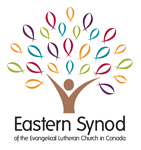I picked up a new book. I could only read a few chapters at a time without….well….thinking. Adam Grant’s Think Again: The Power of Knowing What You Don’t Know, a compelling call for humility, curiosity, and courageous rethinking. Grant’s message is both timely and theologically resonant. Like the individuals within it, the church must constantly engage in the hard but holy work of unlearning and reimagining.
In Think Again, Grant explores the cognitive and emotional habits that allow individuals and communities to embrace change. He challenges the comfort of certainty and encourages a posture of “confident humility” — the ability to act with conviction while being open to revising one’s beliefs when presented with new evidence or perspectives.
This echoes Martin Luther’s own journey of reformation. Luther did not set out to break away from the Church, but to call it to a deeper authenticity. His 95 Theses were not a manifesto of rebellion but a pastoral plea for rethinking indulgences and returning to the heart of the gospel: grace.
Rethinking, for Grant and for Luther, is not about abandoning tradition; it’s about remaining faithful to the living Spirit that moves through it.
Lutheran theology recognizes that ecclesia semper reformanda est — “the Church is always being reformed.” This is not a historical footnote but a call to present-tense faithfulness. The Holy Spirit continues to disrupt, reform, and resurrect. We are invited to think again not just once, but again and again.
This theology affirms that God’s truth is still unfolding. It opens the door to full inclusion of 2SLGBTQIA+ people, to decolonizing theological education, to ecological repentance, to anti-racist re-thinnking, and to the reimagining of worship, leadership, and community. Each of these movements requires a willingness to unlearn inherited biases and to practice what Grant calls “rethinking as a skill set.”
The church doesn’t cling to being “right,” but commits to being in right relationship — with Scripture, tradition, the world, and the Spirit of Christ who surprises us still.
Adam Grant reminds us that “we listen to views that make us feel good, instead of ideas that make us think hard.” The Church could invite the opposite. It could welcome the tension, the discomfort, and even the conflict that comes when real human stories challenge long-held doctrines. We can embrace the grace of growth. And here is the hope.
The church can be a sanctuary of courageous curiosity in a world marked by increased division and certainty. When it chooses to reform not out of institutional survival but out of gospel conviction, it embodies resurrection hope. Like Easter morning, the reformation is not a return to what was, but a leap into what could be.
This hopeful reformation trusts that the Spirit who moved years ago, and now moves in synod assemblies, congregational listening circles, queer Bible studies, and in the quiet moments when a pastor or parishioner dares to say, “ I’m learning.”
We are reminded that learning mirrors a sacred rhythm — repentance, reformation, resurrection. It reminds us that our God is not static. The gospel is not fossilized. And the Church is not a museum of doctrine, but a living body called to breathe deeply, think boldly, and love lavishly.
So with humility and courage, let’s think again. And again. And again.
For in that rethinking, the Spirit reforms.
